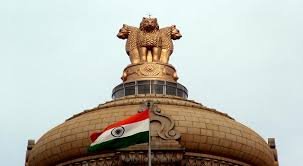On December 24, 2005, an FIR was registered after K. Vikram’s cousin, M. Narsaiah (the deceased), disappeared while on a business trip to collect Rs. 2,92,629/- in Warangal. The prosecution alleged that accused-Moulana, the deceased’s former employer and business rival, murdered him on December 22, 2005, stole his cash, bike, and phone, and then disposed of the body with the assistance of the present appellant for Rs. 30,000/-.
Trial Court (March 5, 2010): Acquitted both accused of murder (S. 302 IPC), disposal of evidence (S. 201 IPC), and theft (S. 379 IPC). However, it convicted both under Section 411 IPC for dishonestly receiving stolen property, sentencing them to three years rigorous imprisonment.
High Court (March 7, 2024): Partially allowed the appeal, affirming the conviction under Section 411 IPC but reducing the sentence to one year. The High Court noted the accused’s inability to explain the cash recovered from them.
Supreme Court Appeal: The appellant, SD. Shabuddin, challenged the High Court’s judgment before the Supreme Court.
Law Involved:
Indian Penal Code, 1860
Section 379 IPC: Defines the offense of theft.
Section 411 IPC: Defines the offense of dishonestly receiving stolen property, requiring dishonest receipt/retention of property with knowledge or reason to believe it is stolen.
Indian Evidence Act:
Section 102: States that the initial burden of proof in a criminal prosecution rests on the prosecution.
Section 114, Illustration (a): Allows the court to presume that a person in possession of stolen goods soon after a theft is either the thief or received them knowing them to be stolen, unless they can account for their possession. This presumption applies only when the foundational fact of theft is established.
Reasoning: The Supreme Court considered two main issues:
Reverse Burden of Proof:
The Court found that the High Court erroneously placed a reverse burden of proof on the accused to account for the cash found in their possession.
It held that the High Court incorrectly applied Section 114, Illustration (a) of the Evidence Act because the prosecution failed to establish the foundational fact of theft. There was no convincing evidence of the total amount the deceased carried, and the recovered cash lacked distinct identification to link it to the deceased.
The Court reiterated that the initial burden of proof always lies with the prosecution to prove its case beyond reasonable doubt, and convicting solely based on the accused’s inability to explain cash possession is “alien to criminal jurisprudence”.
Conviction under Section 411 IPC after Acquittal under Section 379 IPC:
The Supreme Court highlighted that both the Trial Court and High Court had acquitted both accused of the offense of theft (Section 379 IPC).
It emphasized that for a conviction under Section 411 IPC, it is a sine qua non (essential condition) that the property must be “stolen property”, and the accused must have known or had reason to believe it was stolen.
Since the lower courts concluded there was no commission of theft, the premise for an offense of dishonestly receiving stolen property vanished. The prosecution’s theory of theft was “outrightly rejected” by the Trial Court, and no appeal was filed against that acquittal.
Therefore, the conviction under Section 411 IPC could not be sustained.
Holding:
The Supreme Court set aside the High Court’s judgment dated March 7, 2024. The appeal was allowed, and the appellant was acquitted of all charges.
SD. SHABUDDIN V, THE STATE OF TELANGANA
Supreme Court: 2025 INSC 999 (DoJ 19-08-2025)






